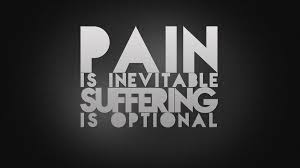记忆方法
记忆“inevitable”的方法是:想象一个“i”站在“evitable”旁边,像是预示着“evitable”(不可避免的)命运中的“i”已经被确定,因此整个单词意味着“必然的、不可避免的”。通过这种视觉联想,单词的含义就会变得容易记忆。
以上内容由AI生成, 仅供参考和借鉴
中文词源
inevitable 无可避免的
in-,不,非,e-,向外,-vit,分开,离开,词源同divide,widow.即不可离开的,引申词义无可避免的。
英语词源
- inevitable
-
inevitable: [15] Latin ēvītāre meant ‘avoid’. It was a compound verb formed from the prefix ex- ‘away, from’ and vītāre ‘shun’, and actually produced an English verb evite ‘avoid’, a scholarly 16th-century introduction which survived as an archaism into the 19th century. Its derived adjective was ēvītābilis ‘avoidable’, which with the negative prefix became inēvītābilis.
- inevitable (adj.)
- mid-15c., from Latin inevitabilis "unavoidable," from in- "not, opposite of" (see in- (1)) + evitabilis "avoidable," from evitare "to avoid," from ex- "out" (see ex-) + vitare "shun," originally "go out of the way."
权威例句
- 1. Most unions see privatisation as an inevitable prelude to job losses.
- 大多数工会认为私有化会不可避免地导致失业。
- 2. Barry's speech followed Dirk Bogarde's appearance, and was an inevitable anticlimax.
- 巴里紧随德克·博加德之后发表了演讲,不出所料,演讲顿时变得索然无味。
- 3. Some backtracking is probably inevitable.
- 有时改变决定可能是不可避免的。
- 4. This scarcity is inevitable in less developed countries.
- 这一匮乏在欠发达国家不可避免。
- 5. Diplomats believe that bureaucratic delays are inevitable.
- 外交官们认为繁文缛节造成的延迟是在所难免的。
